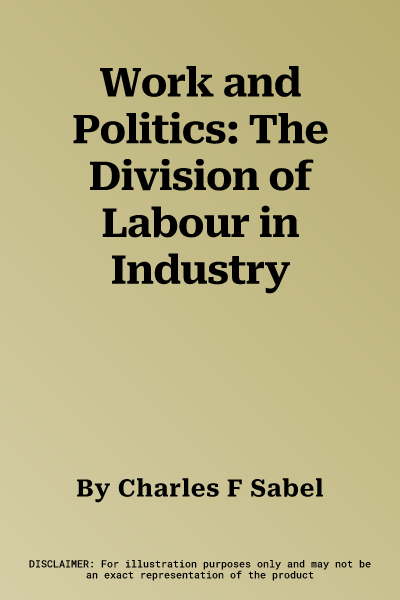Charles F Sabel
(Author)Work and Politics: The Division of Labour in IndustryHardcover, 30 July 1982

Temporarily out of stock
Free Delivery
Cash on Delivery
15 Days
Free Returns
Secure Checkout

Part of Series
Cambridge Studies in Modern Political Economies
Part of Series
Studies in Modern Capitalism = Etudes Sur Le Capitalisme Moderne
Print Length
317 pages
Language
English
Publisher
Cambridge University Press
Date Published
30 Jul 1982
ISBN-10
0521230020
ISBN-13
9780521230025
Description
Product Details
Author:
Book Format:
Hardcover
Date Published:
30 July 1982
Dimensions:
22.81 x
15.19 x
2.11 cm
ISBN-10:
0521230020
ISBN-13:
9780521230025
Language:
English
Location:
New York
Pages:
317
Publisher:
Series:
Weight:
612.35 gm